Many of the beauty products you buy at drug and department stores are loaded with potentially toxic ingredients like parabens, while their active ingredients are made of things like glycolic, lactic, malic, and alpha hydroxy acids and retinoids, which are all derived from foods.
Since your skin is porous, the unsavory chemicals can be soaked up by your body, and even the normally conservative CDC points out that they can be "dermally absorbed." That means those products you thought were making you lovelier can have potentially harmful effects over a lifetime.
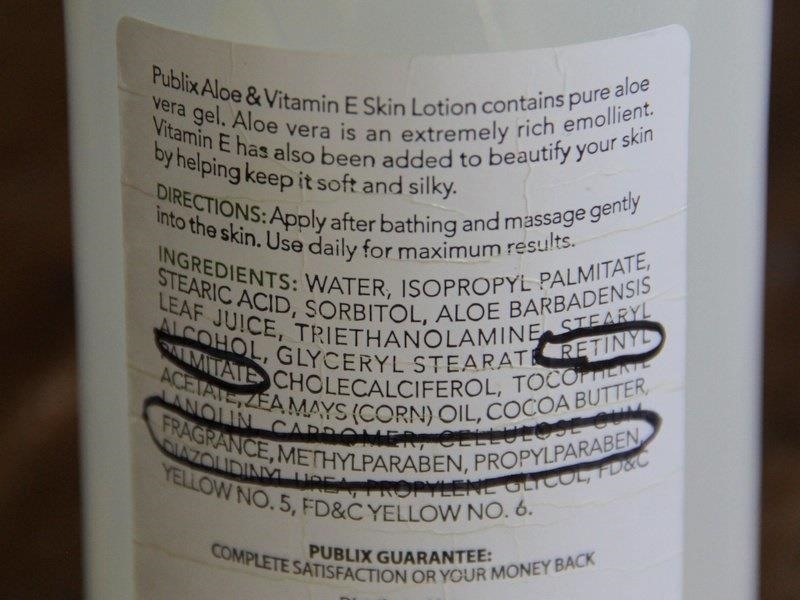
Thankfully, there's a healthy and effective alternative—make cheap, beneficial beauty treatments with food. These DIY versions are remarkably potent and the good stuff they contain like vitamins, minerals, and antioxidants can be "dermally absorbed," but without causing you harm. Bonus: they also won't pollute the planet once they get rinsed down the drain.
Plus, they're cheaper. A quick internet search turned up pre-made body scrubs ranging from $14 to $48 (for 16 ounces of product, max). Meanwhile, you can buy 4 pounds of sea salt online or just as cheaply in the bulk bins at a natural food stores. That's enough abrasive material for a lot of body scrubs! And take into consideration that a jar of organic coconut oil from Trader Joe's is just as cost-effective—$5.99.
Get Rid of Dead Skin with Dairy
Your refrigerator is a treasure trove of face mask ingredients. If you want to exfoliate dead skin cells off your face, reach for unflavored yogurt or buttermilk (but skip the sour cream; it has too many additives). Both contain lactic acid, which many OTC facial peels contain. Hey, purportedly Cleopatra used to bathe in milk to help slough off dead skin. If you can't trust a legendary empress, who can you trust?

Be careful, though: lactic acid will really take a layer of skin off your face. Use it for ten minutes if you have really oily skin, less than that if your skin is sensitive or dry. Trust me: I once did a yogurt face mask and left it on for twenty minutes. The result: Patrick the Starfish with a sunburn.
I Love Natural Skin Care has great recipes for a basic yogurt mask and a few variations.
Moisturizing Masks for Dry Skin
Mashing up or puréeing a ripe banana or an avocado and applying it to your face will leave it with a healthy, silky glow. Plus, if a little gets in your mouth, you don't have to worry.
Avocado is rich in vitamins, antioxidants like lycopene and carotene, and healthy oils. When making a mask, make sure you scrape out the dark green bits that cling to the peel—that's where most of the nutrients lie.

Bananas contain lots of nutrients necessary for skin health: magnesium, potassium, and vitamins C and A to name a few. So you can skip buying pricey vitamin C serums and retinol skin creams (retinols are derived from vitamin A).

Honey: An All-Purpose Ointment
Back-to-nature types have known for eons that honey has many healing properties that are great for the skin—and now science is catching up. It's anti-bacterial, helps wounds heal, and prevents infection. It works great as a face mask, especially if you have acne-prone skin that's also sensitive. You can dab it on a zit to help it heal overnight without drying out your skin. I like to rub a little on chapped lips before applying a heavy-duty lip moisturizer.

The other great thing about honey is there are so many different kinds to try. I favor manuka or raw honey, both of which are supposed to be extremely beneficial to the skin.
In my opinion, you should avoid pasteurized honey. Pasteurizing a product means exposing it to heat, and that can kill off some of the natural enzymes and cultures in honey. It's so high in sugar naturally that it can never go bad.
Oatmeal: A Great Mild Cleanser
Oatmeal is another amazing tool for skincare that's most likely sitting in your kitchen, unused. Since it contains saponins, or mild cleansers, oatmeal can be used to wash sensitive, dry, or eczema- and psoriasis-prone skin with great results. Oatmeal contains a host of good-for-you ingredients, including avenanthramides, a powerful anti-inflammatory. No wonder people have been taking colloidal oatmeal baths for itchy skin for ages.

But you don't have to run out and buy colloidal oatmeal (which is simply very finely ground oats), either. You can make your own by grinding up rolled or steel-cut oats in a good blender or food processor and use the results in your bath, as a face mask, or a cleanser.
If that's too much work, you can soak rolled or steel-cut oats in water overnight and use the resulting "milk" as a gentle mask or face cleanser—or follow the method from Bubz Beauty:
Zap Zits by Applying Food
OTC zit medicines do work, but they often leave me with red, irritated skin that scabs afterwards. All-natural alternatives take longer to work, but they do so without leaving behind harsh scars.
Try a dab of juice from a split clove of garlic, honey, or apple cider vinegar on your zit. As mentioned above, honey is antibacterial, as is garlic. Meanwhile, many home beauty enthusiasts tout the ability of apple cider vinegar to restore the skin's acid mantle and PH balance.

When mixed or diluted with water, baking soda, lemon or lime juice, and ground-up aspirin have also had good effects. The main ingredient in aspirin is chemically similar to salicylic acid, a known pimple fighter, so make sure you use actual aspirin rather than an ibuprofen or acetaminophen pill.
Baking soda also has anti-bacterial properties (and for true science nerds, it's also amphoteric, which means it can act as either an acid or a base, depending on the substance it is reacting to.
Lemon juice is high in vitamin C and highly acidic. It must be diluted with water before it is applied to skin (and you're better off leaving it on for a short amount of time).

In fact, some folks recommend skipping it entirely because of its strength. Personally, I've used it without harm, but my skin is very oily.
DIY Body Scrubs
After a long, dry winter or a summer spent outdoors, your skin can feel pretty rough. You don't have to buy some overpriced scrub to get all the dead skin cells off. Instead, make your own using an abrasive agent like coffee grounds (which contains antioxidants and caffeine, both of which could reduce cellulite), sugar (a progenitor of glycolic acid and a natural humectant, or moisturizer), or sea salt (another natural humectant).

When mixed with water, or even oil for a moisturizing effect, these scrubs will slough off dead skin for mere pennies. You can get some really tasty recipes for DIY body scrubs over at Treehugger.
Teeth Whitening
While strawberries and apples may not have the same dramatic effects as whitening strips, the former contains ascorbic acid acid, which has a mild tooth-whitening effect, while the latter has a high content of malic acid, which is found in many tart fruits and also has the same effect on teeth.
You can mash up these fruits and leave them on your teeth—or just make a point of eating a lot of them.

In general, good eating habits (like noshing on lots of fresh produce) help keep teeth white for a couple of reasons: firm, crunchy, high-fiber foods like carrots have a "scrubby" effect on teeth, which remove stains. Plus, chewy produce (and other chewy foods, like raisins), make the mouth produce saliva, which neutralizes elements that attack tooth enamel, according to Jyoti Srivastava, MS, DDS, a New York City-based prosthodontist.
Body Moisturizers
Skin is your body's largest organ, and as mentioned above, incredibly porous and absorbent. Instead of slathering it with a bunch of man-made chemicals when it feels dry, I like to literally "feed" my skin with oils straight from the kitchen: olive, coconut, and hemp seed.
While many food oils make wonderful moisturizers, these happen to be my favorite. Why? All three of these oils are high in antioxidants and anti-inflammatory agents like omega 3s. They don't absorb quite as easily as store-bought moisturizers, but I just keep an old washcloth handy to wipe myself down once I'm ready to get dressed.
Hair Care
Olive and coconut oil work like gangbusters on the skin, but they're also terrific deep-conditioning masks for hair. Italian women have sworn by olive oil as a DIY hair mask for years, while a scientific study by A.S. Rele and R.B. Mohile shows that coconut oil might actually strengthen hair.


You can also mix the oil of your choice with other moisturizing ingredients as you see fit. Here's a great list of other ingredients that work well on hair as well as some good DIY hair mask recipes.

What if you have oily or flat hair? The culprit might not be your genes, but rather too much styling residue and an ineffective shampoo. You don't need to buy an expensive shampoo that removes build-up: a baking soda or apple cider vinegar rinse will do the trick.

I also like to make a paste of baking soda and water and use it to scrub my scalp clean—it feel so good!
Last but Certainly Not Least: Sunscreen
Yes, you can even make your own all-natural sunscreen with no toxic ingredients using mostly food-grade ingredients. Check out Yumi's guide to learn how.

Keep in mind that this only scratches the surface. There's a whole world of DIY beauty out there, from turmeric, cinnamon, or egg white face masks to using lemon juice and vodka to lighten hair.
What foodstuffs do you recommend as beauty products?
Just updated your iPhone? You'll find new emoji, enhanced security, podcast transcripts, Apple Cash virtual numbers, and other useful features. There are even new additions hidden within Safari. Find out what's new and changed on your iPhone with the iOS 17.4 update.
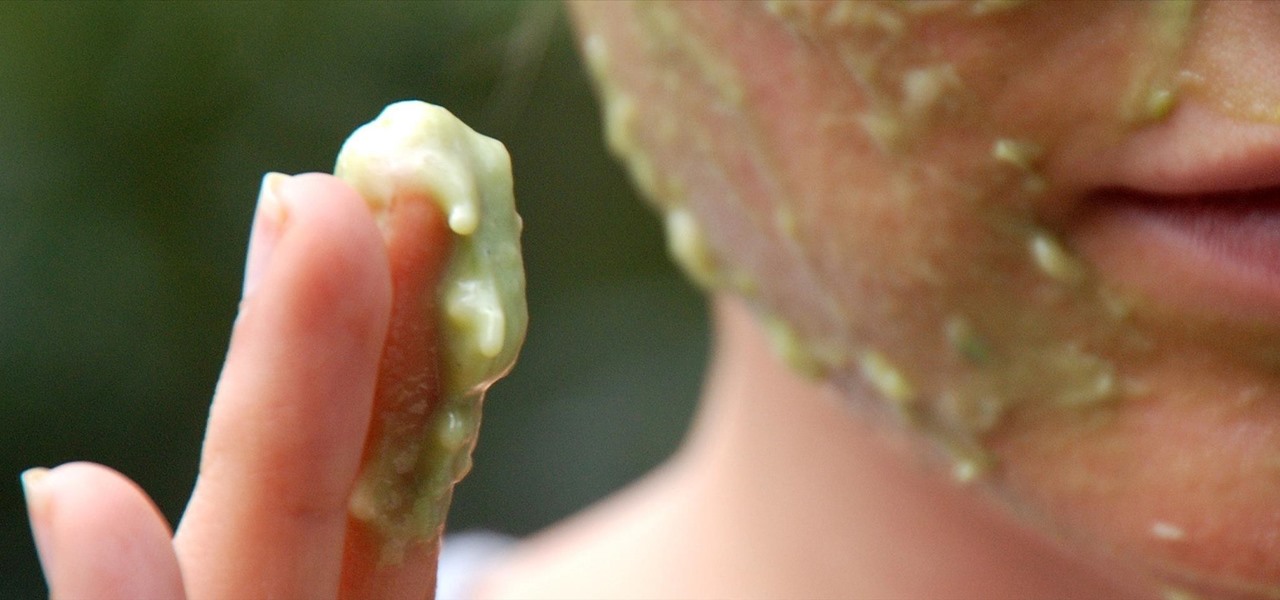


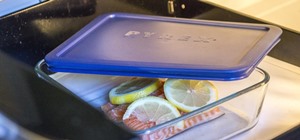
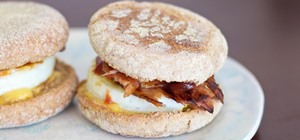
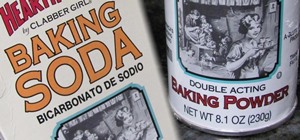
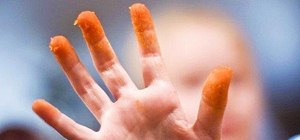
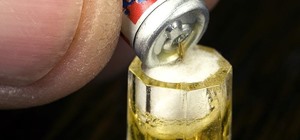
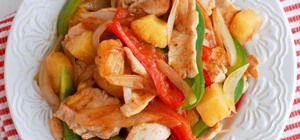
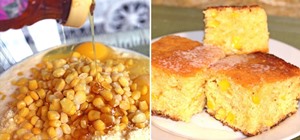
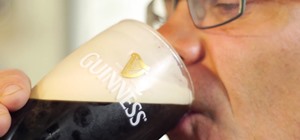
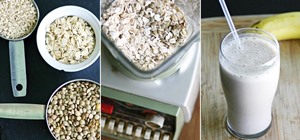
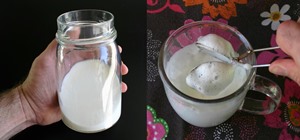
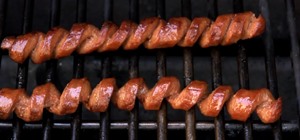
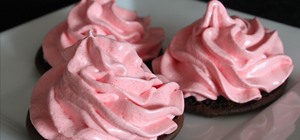
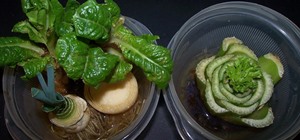
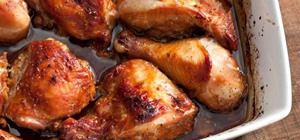
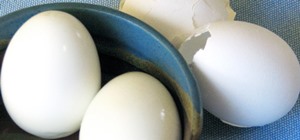
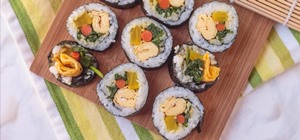
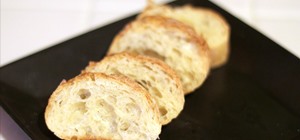
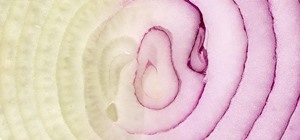
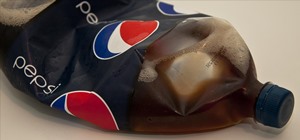
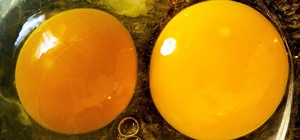
Be the First to Comment
Share Your Thoughts